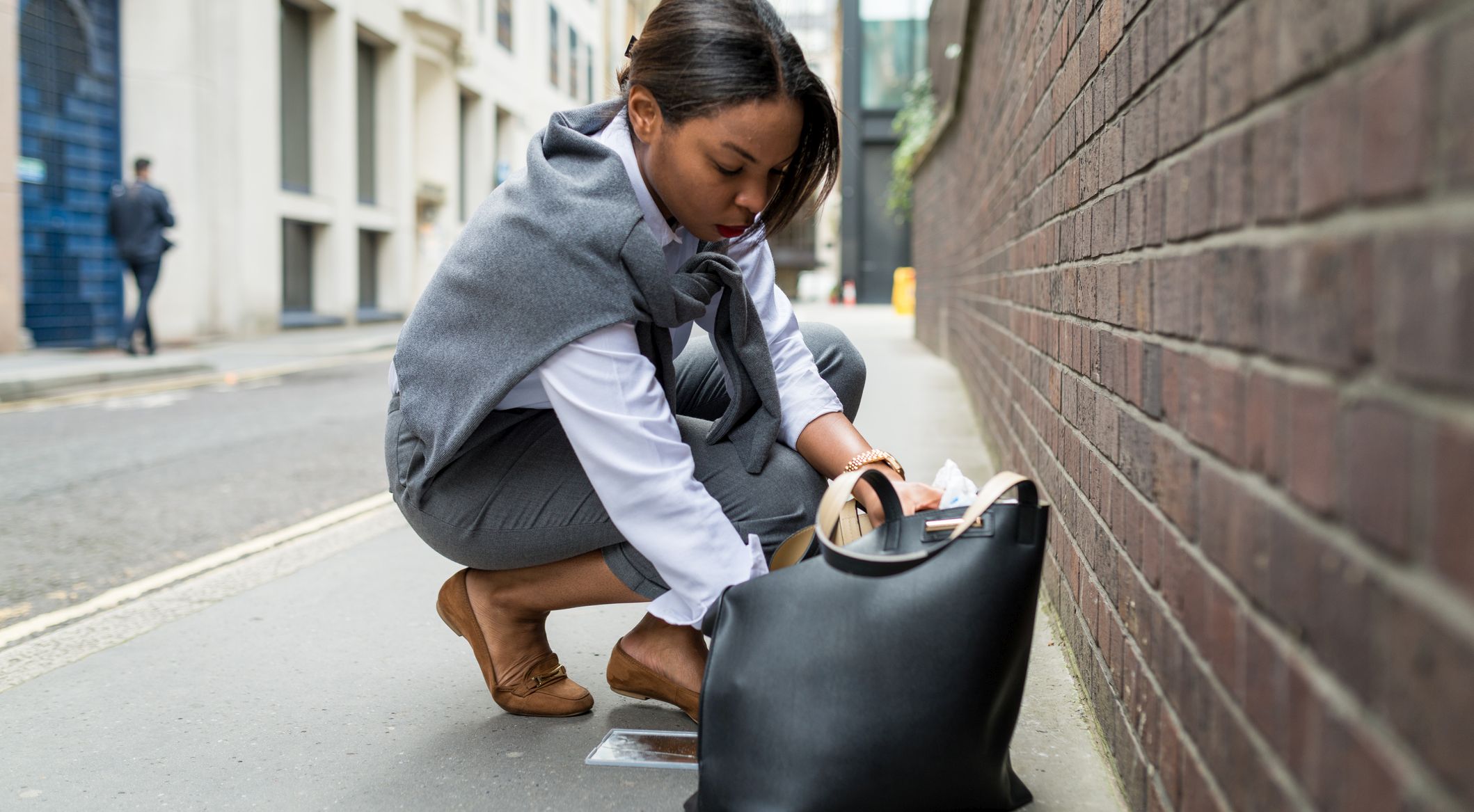If you’ve ever lost your wallet, you know the panic that sets in. Not only are you without your identification and credit cards, but you also have to worry about someone finding and using your personal information.
Unfortunately, it’s a common problem to have. In a 2019 survey by MoneyTips, 62% of respondents said their wallets had been lost or stolen in the past.
If you aren’t sure what to do if you lose your wallet, here’s what you should know to protect your identity and keep your finances secure.
What to Do If You Lose Your Wallet: 5 Steps
Losing your wallet can be a big problem. Not only do you have to worry about the cost of replacing your wallet and its contents — for example, a replacement driver’s license in Tennessee can cost between $8 and $12 — you also have to worry about fraudulent charges on your debit or credit cards.
If your wallet was lost or stolen, follow these five steps right away to minimize your losses:
1. Contact Your Credit Card Companies
If your wallet is lost or stolen, the first step you should take is contacting each of the credit card issuers listed on any cards in your wallet. You can find the number to call on your card issuer’s website.
You’ll need to report what happened so that no fraudulent charges can be made on those accounts. The credit card company will freeze the cards and issue you replacement ones quickly so you don’t have to live without a credit card for more than a few days.
If someone has used your cards for unauthorized purchases, the credit card company will ask you to verify or dispute those charges. If you report them as unauthorized, they’ll be removed from your account.
2. Call Your Bank
Next, call your bank and notify them that your wallet was stolen. The bank will freeze your debit card and send you a replacement. If you had your checkbook in your wallet, the bank can freeze your checking account to prevent checks being written and money withdrawn from your account.
Time is of the essence; if you wait to report a lost or stolen debit card, you could be on the hook for unauthorized purchases. If you report the loss within two business days, you’re only responsible for $50 of unauthorized transactions. However, if you wait two to 59 days, you’re responsible for up to $500 in unauthorized transactions. And if you wait 60 days or more, you could be responsible for all of the charges made.
Learn More: Dollars & Sense: Are Debit Cards More Secure Than Cash?
3. Monitor Your Credit Report
If your wallet was stolen, the thief likely has significant amount of information about you. If they have your driver’s license, they have your birth date and address, and with your credit cards and bank cards, they know where you keep your money. That stolen information could be used to open other accounts in your name, such as loans or credit cards, potentially wrecking your credit.
To find out if your information has been fraudulently used to open accounts, review your free credit report regularly. Until April 20, 2022, you can view your credit reports from each of the three credit bureaus — Experian, Equifax and TransUnion — for free on a weekly basis at AnnualCreditReport.com. After that, you can view your credit reports once per year from each bureau at no cost.
If you find evidence of fraudulent activity, you can dispute those charges online through the credit bureaus’ websites.
4. Place a Fraud Alert on Your Credit Report
To prevent anyone from opening accounts in your name, place a fraud alert on your credit report. When you activate a fraud alert, it notifies credit card companies and lenders that your information was compromised. They will take extra steps to verify your identity before issuing new lines of credit, protecting your information.
Fraud alerts are free, and you can place them online. You only need to place a fraud alert with one of the three credit bureaus — that bureau will communicate with the other two on your behalf. You can request a fraud alert through these links:
5. (If Necessary) File a Police Report
If you think your wallet was stolen and not just misplaced, file a police report. In many counties, you can file a police report online.
A police report can come in handy if you need to dispute loans or credit cards that were fraudulently opened in your name. Some creditors will require a copy of the police report to close the accounts and remove them from your credit report.
Never Lose Your Wallet Again: Sign Up For a Digital Wallet
Losing your wallet can be stressful, and canceling and replacing your cards can be time-consuming. Now that you know what to do if you lose your wallet, you can handle the situation and protect your finances.
To prevent going through this experience again, consider exploring digital wallet security features like tokenization. With a digital wallet, your information is protected by an app like Apple Pay, Samsung Pay, or Google Pay.
If you don’t use a digital wallet yet, consider opening an account with SouthEast Bank to take advantage of these benefits.
Learn More: Financial Security: Leave These 6 Things at Home
Note: Links to other websites or references to services or applications are provided as a convenience only. A link does not imply SouthEast Bank’s sponsorship or approval of any other site, service or application. SouthEast Bank does not control the content of these sites, services or applications.
Information contained in this blog is for educational and informational purposes only. Nothing contained in this blog should be construed as legal or tax advice. An attorney or tax advisor should be consulted for advice on specific issues.




